In a stunning turn of events, Elon Musk has sounded the alarm on Dogecoin, warning the public that it’s far more than just a joke cryptocurrency. Shocking new revelations suggest Musk’s ties to DOGE run deeper than anyone imagined — and it’s linked to a potential cover-up that’s rocking the financial world to its core.
Could Dogecoin be at the center of one of 2024’s biggest investment scandals? As explosive details come to light, investors are scrambling, and legal experts are asking: Who knew what — and when?
🔥 The truth is unraveling fast. The implications? Absolutely mind-blowing.
Stay tuned — the DOGE drama is just getting started.
:
💸 The $40 Billion Woke Empire: Is USAID Fueling a Global Agenda with Your Tax Dollars?
A political firestorm is erupting in Washington as critics take aim at USAID — the United States Agency for International Development — accusing it of morphing into a $40 billion engine for pushing woke ideology across the globe. But this goes far beyond budget debates. At stake is a fundamental question: Should American foreign aid reflect national interests, or activist ideals?
As scrutiny intensifies, the spotlight turns to how taxpayer funds are being used — and whether USAID has quietly redefined U.S. diplomacy in the process.
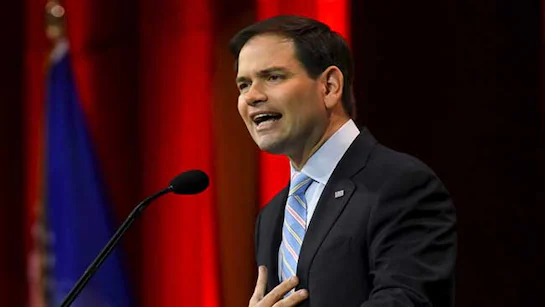
🐕 Elon Musk’s DOGE: The Unlikely Auditor of Global Stupidity

Enter Elon Musk — the billionaire disruptor of cars, rockets, and now… bureaucracy. With quiet precision, Musk has unleashed a shadow unit dubbed the “Doge Team” — a band of data wizards and policy renegades tasked with auditing the behemoth that is USAID. Their mission? Expose the waste, cut the fat, and blow the whistle on what they claim is an ideological spending spree masquerading as foreign aid.
The team’s early findings read more like satire than strategy: a DEI-themed musical in Ireland, gender activism workshops in Guatemala, and even a transgender opera staged in Colombia. Musk didn’t mince words. He calls it “laundering stupidity through performance art” — a withering critique of an agency he argues has strayed far from its core mission.
🇺🇸 Senator Rubio’s Constitutional Crusade: Cutting the Supply of Fiscal Fentanyl
Senator Marco Rubio has officially joined the battle — and he’s not here to play politics. A long-time critic of USAID’s sprawling mandate, Rubio is calling for emergency intervention: “Assume interim control of USAID, full operational discretion, immediate coordination with DOGE.” Backed by Elon Musk’s explosive DOGE dossier, Rubio is launching what he calls a “full constitutional reset.”
His plan? Ruthless. Audit everything. Eliminate what can’t be defended. Absorb the essentials into the State Department — and shut the rest down. This isn’t a trim around the edges; it’s a scorched-earth review of the entire foreign aid apparatus.
Rubio’s first move: an immediate freeze on all discretionary spending and a sweeping contract purge. In his words, “We’re done funding performance art with tax dollars.” The message is clear: the status quo is over.
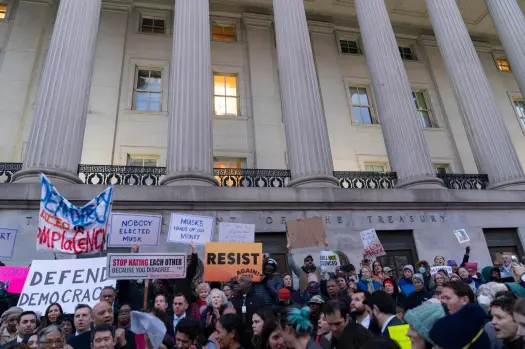
🆚 The Clash of Ideologies: Humanitarian Aid or Ideological Export?
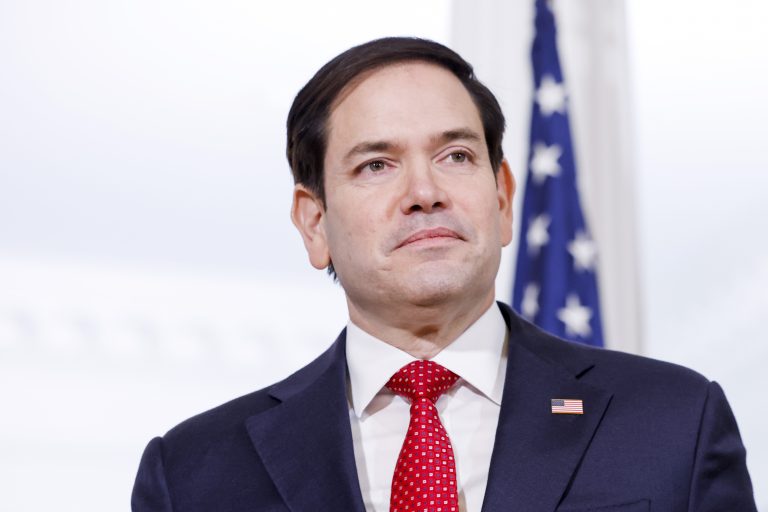
The backlash is immediate — and ferocious. Detractors accuse Senator Rubio of “gutting humanitarian aid” and sending shockwaves through America’s global alliances. But Rubio isn’t backing down. “What’s dangerous,” he fires back, “is confusing ideology with aid.”
To him, funding drag theater in Colombia isn’t diplomacy — it’s “foreign performance art,” masquerading as mission work. This isn’t a simple budget dispute. It’s a full-blown ideological war, a reckoning over what U.S. foreign aid should represent — compassion or cultural export.
And as the iconic USAID emblem is quietly taken down, a faint moan echoes through its D.C. headquarters — the sound of an institution reeling under the weight of its own reinvention.
⚖️ The Courts Intervene: A Scalpel Held Midair
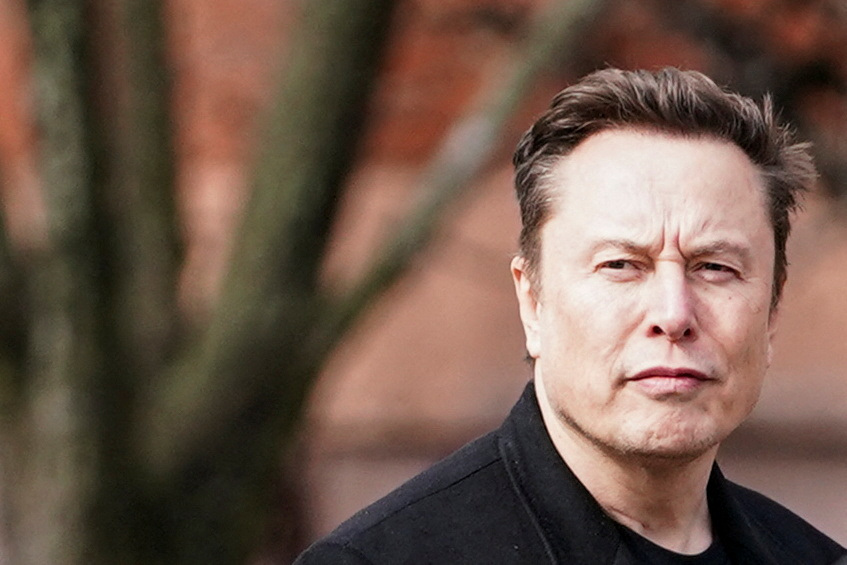
The storm takes a sharp turn as a federal judge steps in. Judge Theodore Chuang issues an emergency injunction, immediately halting the terminations, contract cancellations, and reassignments initiated by Rubio and Musk’s Doge team. In his ruling, Chuang casts doubt on the role of Elon Musk, questioning whether his influence extends beyond advisory to “authority exercised without accountability.”
The administrative state, long entrenched and unyielding, flexes its considerable muscles, freezing Doge’s surgical reform efforts in midair. What seemed like an unstoppable force now faces a hard stop — the courts, not Congress or the executive, holding the reins of change.
The battle is far from over. It has simply shifted to a new front: Can the executive branch still operate with its usual autonomy, or have the courts now assumed a supervisory role in shaping the nation’s reform agenda?
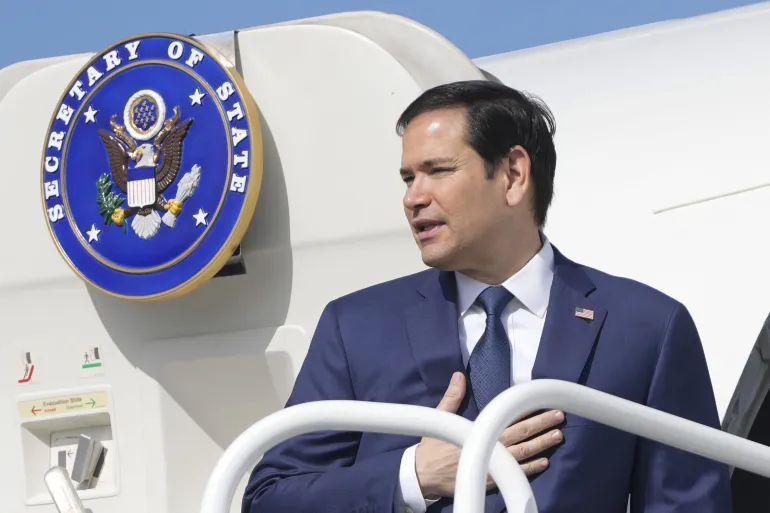
Appeals Court Rules: Doge Unleashed
In a decisive turn of events, the appeals court overturns the injunction, declaring that there is insufficient evidence to suggest a constitutional violation. Judge A. Marvin Quattelbomb delivers a powerful statement: “Unconventional does not necessarily equal unconstitutional.” With this ruling, the Doge team is unleashed once more, and the momentum shifts in Rubio’s favor.
The battle heats up. Armed with the court’s decision, Rubio moves swiftly to terminate contracts, defund unnecessary shell organizations, and eliminate redundant DEI programs. “We didn’t just win a court case; we won clarity,” Rubio declares, setting his sights on a broader vision for foreign policy reform.
The Sunset of USAID: A New Era of American Foreign Policy?
The showdown culminates with an official notification to Congress: all non-essential USAID operations will sunset by July 1st, 2025. The move is audacious, but Rubio stands firm in his defense of the administration’s actions, calling it “strategic hygiene” — a necessary step to ensure that American foreign policy reflects the nation’s core values, not global ideologies.
In a symbolic gesture, the USAID emblem is removed from the building, marking the end of an era. But even as this chapter closes, the war is far from over. With the courts’ ruling in their favor, Musk and Rubio shift focus to a new list of government agencies ripe for reform. The saga of Doge continues, and the battle to redefine American foreign policy is just beginning.